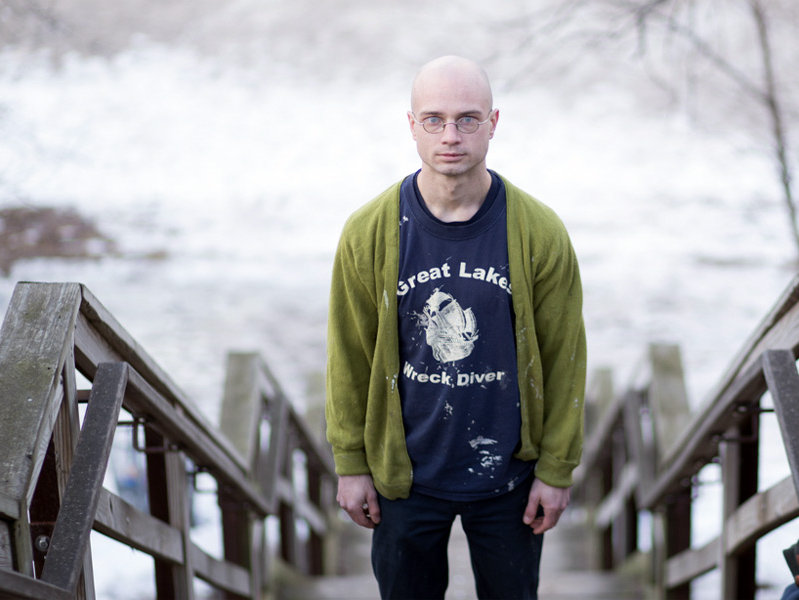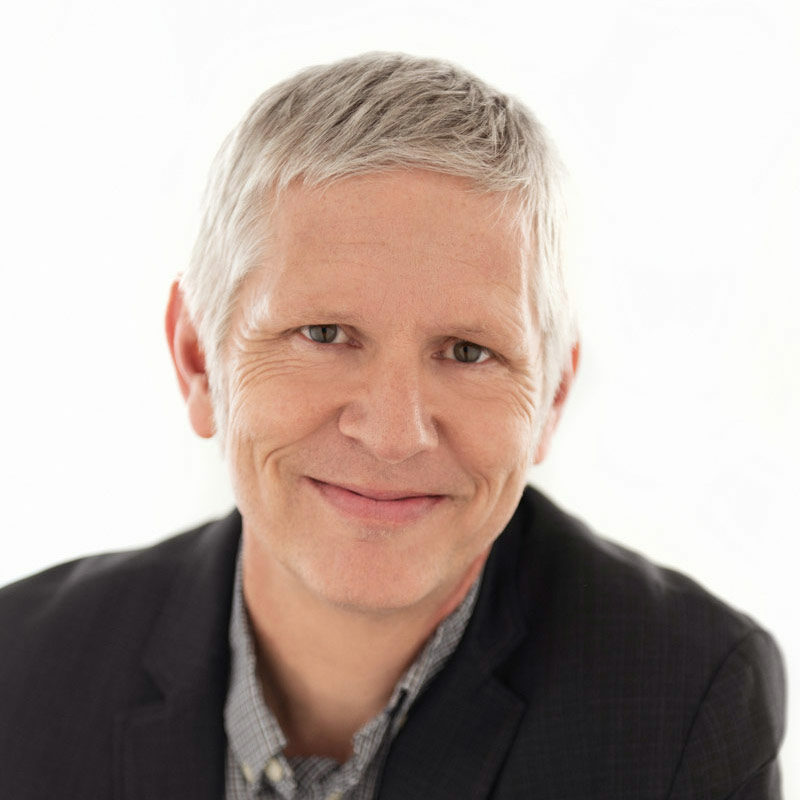It seems, at the outset, like an unexpected marriage:
"The acts of thinking comedically and behaving democratically share enough analogous elements that an extended comparison between the two makes each much clearer."
But, Milwaukee writer and musician Adam Krause – who plays drums with Group of the Altos and is a carpenter and co-founder of Build Milwaukee construction cooperative – sat down at the intersection of Comedy and Politics to have a think and the result is "The Revolution Will Be Hilarious," which in a mere 41 pages makes a cogent and, in the end, startlingly simple point:
Spoiler alert...
The key to the survival of humanity? Tell funnier jokes.
"As a lifelong class clown and very serious goof-ball, I have always prided myself on the importance of having a humorous mindset and not taking oneself too seriously. I think my DNA is just wired for silliness," says Krause.
"But authority figures throughout my life have always felt the need to let me know that I should settle down and learn to take life a little more seriously. I always thought they were wrong. Totally, totally wrong. It seemed not only possible, but actually preferable, to do the things that are important to you, but approach them with a sense of fun and a refusal to take yourself too seriously."
Krause, who also wrote another book – "Art As Politics," in 2011 – for the same publisher (the Norway-based New Compass Press) – says that, though he name-checks Woody Allen, Richard Pryor, Conan O’Brien and Marc Maron in "The Revolution Will Be Hilarious," the idea sprouted from a seed planted by someone who is typically viewed a little more seriously.
"I remember being very taken by a passage in a book of interviews with Vaclav Havel, the playwright and dissident, who eventually became the first president of the post-Communist Czech Republic. He was one of the most important figures in hastening the downfall of totalitarian Communism. In other words, someone who did some pretty serious work with his life. The passage was in ‘Disturbing the Peace:’
If you don't want to dissolve in your own seriousness to the point where you become ridiculous to everyone, you must have a healthy awareness of your own human ridiculousness and nothingness. As a matter of fact, the more serious what you are doing is, the more important it becomes not to lose this awareness. If you lose this, your own actions - paradoxically - lose their seriousness. A human action becomes genuinely important when it springs from the soil of a clear sighted awareness of the temporality and ephemerality of everything human. It is only this awareness that can breathe any greatness into an action.
"Reading this made me think that maybe I wasn't crazy or wrong in my insistence on maintaining humor in all possible instances, and that maybe it was my bosses and teachers who had it wrong. As I wrote and researched "The Revolution Will Be Hilarious," I became more and more convinced that Havel and I – to rather presumptuously put myself in some pretty good company – have it right. The reasons for maintaining a humorous mindset are incredibly compelling and really quite numerous. And many of these reasons have strong social, political, and ethical implications, dealing as they do with how we interact and treat one another. So I set out to explore the political dimensions of humor."
In doing so, Krause drew on a number of sources. In addition to the comedians he considers, he consults everyone from Emma Goldman (and an apocryphal, if not outright false, quote attributed to her) to David Foster Wallace to Walt Whitman to Mikhail Bakhtin to Arthur Koestler.
Krause credits Koestler’s "The Act of Creation" as helping spark in him the appreciation of the political value of humor.
"It was the first really serious philosophical work I had ever read, and Koestler's account of how comedy works totally blew my mind and stuck with me pretty hard," he says. "Since it played such a formative role in my thinking, I guess it shouldn't really surprise me that even over two decades later, I would suddenly be struck with the idea to use Koestler's analysis of comedy as an extended analogy to explain a democratic mindset. I think it works really well."
Krause’s two books for New Compass are slim in size – though certainly not in ideas – and they harken back to earlier eras when pamphletry was a valid means of sharing quick-hitting arguments and ideas.
He says he likes the concept of the pamphlet and hopes his works do a little to re-harness their power.
"Political pamphlets as a genre, if that even is a genre, typically seem to be the territory of paranoiac gun-stockpilers with a tendency to ramble and lose focus," he says. "I feel like I managed to transcend those tropes and make a political point in a pamphlet-sized package that people might actually want to read."
Krause’s relationship with New Compass has given him an outlet for passion for pamphlets. It was a relationship born out of an article he’d written for a Norwegian magazine called "Communalism."
When the magazine ceased publication and editor Eirik Eiglad decided to found New Compass, Krause expressed his desire to expand on his article. And, thus, "Art As Politics" was born and New Compass published it.
"I kind of stumbled into having a publisher, and managed to bypass that whole daunting process of sending query letters to agents and all the other rigamarole that usually goes into trying to make a book exist. Of course, stumbling into a publisher is a dangerous proposition, but I got pretty lucky, because everyone at New Compass is really supportive of what I do, and seem legitimately excited when I send them new stuff.
"Eirik was actually in Chicago for a conference just as we were finishing up ‘The Revolution Will Be Hilarious,’ so he came up to Milwaukee for a few days, we met in person for the first time after four years of emails, and we did the final edits and layout together."
So, how does a Milwaukee drummer end up the author of an ongoing series of political pamphlets?
"I chose to write what is an intensely political book because I really don't see the point in doing anything else. The political realm is everywhere and inescapable. To try to sidestep it is itself a political decision," he says. "I had no choice but to write a political book."
"And because I love and value humor, I ended up writing a political book about the importance of humor. It was the only book I felt compelled to write. And not only that, but humor seems to get left out of most ‘serious’ political and academic books about the crises we face. But as I show in this pamphlet, a humorous mindset is essential to any effective change. It is a topic that is widely ignored. And I got sick of seeing it ignored and decided to make the book that I thought the world was lacking."
Born in Brooklyn, N.Y., where he lived until he was 17, Bobby received his BA-Mass Communications from UWM in 1989 and has lived in Walker's Point, Bay View, Enderis Park, South Milwaukee and on the East Side.
He has published three non-fiction books in Italy – including one about an event in Milwaukee history, which was published in the U.S. in autumn 2010. Four more books, all about Milwaukee, have been published by The History Press.
With his most recent band, The Yell Leaders, Bobby released four LPs and had a songs featured in episodes of TV's "Party of Five" and "Dawson's Creek," and films in Japan, South America and the U.S. The Yell Leaders were named the best unsigned band in their region by VH-1 as part of its Rock Across America 1998 Tour. Most recently, the band contributed tracks to a UK vinyl/CD tribute to the Redskins and collaborated on a track with Italian novelist Enrico Remmert.
He's produced three installments of the "OMCD" series of local music compilations for OnMilwaukee.com and in 2007 produced a CD of Italian music and poetry.
In 2005, he was awarded the City of Asti's (Italy) Journalism Prize for his work focusing on that area. He has also won awards from the Milwaukee Press Club.
He has be heard on 88Nine Radio Milwaukee talking about his "Urban Spelunking" series of stories, in that station's most popular podcast.







